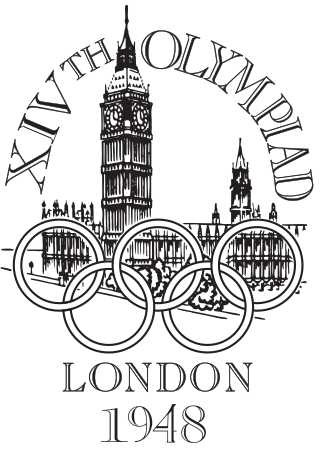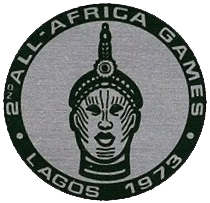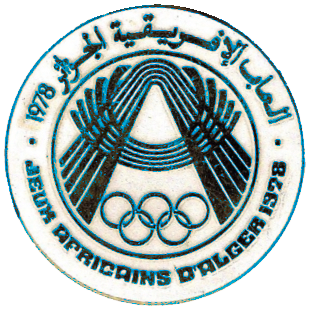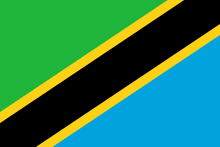
The Winter Olympic Games is a major international multi-sport event held once every four years for sports practiced on snow and ice. The first Winter Olympic Games, the 1924 Winter Olympics, were held in Chamonix, France. The modern Olympic Games were inspired by the ancient Olympic Games, which were held in Olympia, Greece, from 776 BC to 394 AD. The Baron Pierre de Coubertin of France founded the International Olympic Committee (IOC) 1,500 years later in 1894, leading to the first modern Summer Olympic Games in Athens, Greece in 1896. The IOC is the governing body of the Olympic Movement, with the Olympic Charter defining its structure and authority. The original five Winter Olympic Sports were bobsleigh, curling, ice hockey, Nordic skiing, and skating. The Games were held every four years from 1924 to 1936, interrupted in 1940 and 1944 by World War II, and resumed in 1948. Until 1992, the Summer Olympic Games and the Winter Olympic Games were held in the same year. This cycle changed in 1986, when during the 91st International Olympic Committee sesion held in 1986,IOC members decided to alternate the Summer Olympic Games and the Winter Olympic Games on separate four-year cycles in even-numbered years.Also,at that same congress it was decided that 1992 Winter Olympics would be the last to be held in the same year as the Summer Games and that to change the rotation, the edition that would be held in 1996 would be brought forward by two years, being scheduled to 1994.After this edition,the next one was to be held in 1998 when the 4-years Olympic Cycle resumed.

The Commonwealth Games is a quadrennial international multi-sport event among athletes from the Commonwealth of Nations, which mostly consists of territories of the former British Empire. The event was first held in 1930 and, with the exception of 1942 and 1946, has successively run every four years since. The event was called the British Empire Games from 1930 to 1950, the British Empire and Commonwealth Games from 1954 to 1966, and British Commonwealth Games from 1970 to 1974. Athletes with a disability are included as full members of their national teams since 2002, making the Commonwealth Games the first fully inclusive international multi-sport event. In 2018, the Games became the first global multi-sport event to feature an equal number of men's and women's medal events, and four years later they became the first global multi-sport event to have more events for women than men.

The 1948 Summer Olympics were an international multi-sport event held from 29 July to 14 August 1948 in London, United Kingdom. Following a twelve-year hiatus caused by the outbreak of World War II, these were the first Summer Olympics held since the 1936 Games in Berlin. The 1940 Olympic Games had been scheduled for Tokyo and then for Helsinki, while the 1944 Olympic Games had been provisionally planned for London. This was the second time London hosted the Olympic Games, having previously hosted them in 1908, forty years earlier. The Olympics would return again to London 64 years later in 2012, making London the first city to host the games three times, and the only such city until Paris and Los Angeles host their third games in 2024 and 2028, respectively. The 1948 Olympic Games were also the first of two summer Games held under the IOC presidency of Sigfrid Edström.

Sir John George Walker, is a former middle-distance runner from New Zealand who won the gold medal in the men's 1500 m event at the 1976 Olympics. He was also the first person to run the mile in under 3:50. In more recent years, Walker has been active in local government, as an Auckland Councillor and representing the Manurewa-Papakura ward.

The 1980 Summer Olympics, officially known as the Games of the XXII Olympiad and commonly known as Moscow 1980, were an international multi-sport event held from 19 July to 3 August 1980 in Moscow, Soviet Union, in present-day Russia. The games were the first to be staged in an Eastern Bloc country, as well as the first Olympic Games and only Summer Olympics to be held in a Slavic language-speaking country. They were also the only Summer Olympic Games to be held in a socialist state until the 2008 Summer Olympics held in China. These were the final Olympic Games under the IOC Presidency of Michael Morris, 3rd Baron Killanin before he was succeeded by Juan Antonio Samaranch, a Spaniard, shortly afterwards.

Filbert Bayi Sanka is a Tanzanian former middle-distance runner who competed throughout the 1970s. He set the world records for 1500 metres in 1974 and the mile in 1975. His world record in the 1500 m was also the Commonwealth Games record until 2022.

The European Athletics Championships is a biennial athletics event organised by the European Athletics Association and is recognised as the elite continental outdoor athletics championships for Europe.

The United States of America has sent many athletes to the celebration of the Olympic Games, starting with the first modern Olympics held in 1896. The United States has sent athletes to every Olympic Games with the exception of the 1980 Summer Olympics, during which it led a boycott in protest of the Soviet Union's invasion of Afghanistan. The United States Olympic & Paralympic Committee (USOPC) is the National Olympic Committee for the United States.

Sweden first participated at the Olympic Games at the inaugural 1896 Games, and has sent athletes to compete in every Games since then with one exception, the sparsely attended 1904 Summer Olympics. Sweden has earned medals at all Olympic games except for two, the 1896 Games and the 1904 Games. The only other nation having earned medals at every Olympic game since 1908 is Sweden's neighboring country Finland.

The 2nd All-Africa Games – Lagos 1973 were played from January 7, 1973, to January 18, 1973, in Lagos, Nigeria.

The 3rd All-Africa Games – Algiers 1978 was a multi-sport event played from July 13, 1978, to July 28, 1978, in Algiers, Algeria. 45 countries from 49 independent African countries participated in twelve sports.
The men's discus throw event at the 2000 Summer Olympics as part of the athletics program was held at the Olympic Stadium on Sunday, 24 September and Monday, 25 September. Forty-five athletes from 28 nations competed. The event was won by Virgilijus Alekna of Lithuania, the nation's second victory in the men's discus throw. Lars Riedel of Germany took silver, becoming the 13th man to win multiple discus throw medals. Frantz Kruger earned South Africa's first medal in the event with his bronze.
The men's 100 metres was an event at the 1992 Summer Olympics in Barcelona, Spain. There were a total number of 81 participating athletes from 66 nations, with ten qualifying heats. Each nation was limited to 3 athletes per rules in force since the 1930 Olympic Congress.

The men's 1,500m metres was an event at the 1976 Summer Olympics in Montreal, Quebec, Canada. The final was held on Saturday 31 July 1976 and was contested by 9 athletes. The semifinals were held on 30 July 1976 and were contested by 18 athletes. The heats were held on 29 July 1976 and 45 athletes entered; 42 athletes from 28 nations competed. The maximum number of athletes per nation had been set at 3 since the 1930 Olympic Congress. The event was won by John Walker of New Zealand, the nation's first 1500 metres title since 1964 and third overall. Ivo Van Damme's silver was Belgium's first medal in the event.

Switzerland made its Paralympic Games début at the inaugural Paralympic Games in Rome in 1960, and has participated in every edition of the Summer Paralympics. It also took part in the inaugural Winter Paralympics in 1976 in Örnsköldsvik, and has competed in every edition of the Winter Games.

Tanzania competed at the 2012 Summer Olympics in London, United Kingdom from 27 July to 12 August 2012. This was the nation's twelfth appearance at the Olympics. Tanzania did not compete at the 1976 Summer Olympics in Montreal, because of the African boycott.

Tanzania competed at the 2016 Summer Olympics in Rio de Janeiro, Brazil, from 5 to 21 August 2016. Seven athletes, five men and two women, competed in five events across three sports, but did not win any medals. Hilal Hemed Hilal, however, set a new national record in the men's 50 m freestyle event. Four athletes took part in track and field athletics, all in marathons, while two participated in the swimming tournament's 50 m freestyle category. The flagbearer for the opening ceremony was Andrew Thomas Mlugu, who was Tanzania's first Olympic judoka. His counterpart in the closing ceremony was Alphonce Felix Simbu, who had earned the nation's best finish at the Games by placing fifth in the men's marathon. Prior to these Games, Tanzania had sent athletes to twelve editions of the Summer Olympics.

Tunisia competed at the 2019 African Games held from 19 to 31 August 2019 in Rabat, Morocco. In total, athletes representing Tunisia competed in all 26 sports held at the competition and they won 26 gold medals, 36 silver medals and 35 bronze medals. The country finished in 6th place in the medal table.

Botswana (BOT) has competed in the last eight African Games, first appearing in 1991. Athletes from Botswana have won a total of 76 medals, including twenty gold.















